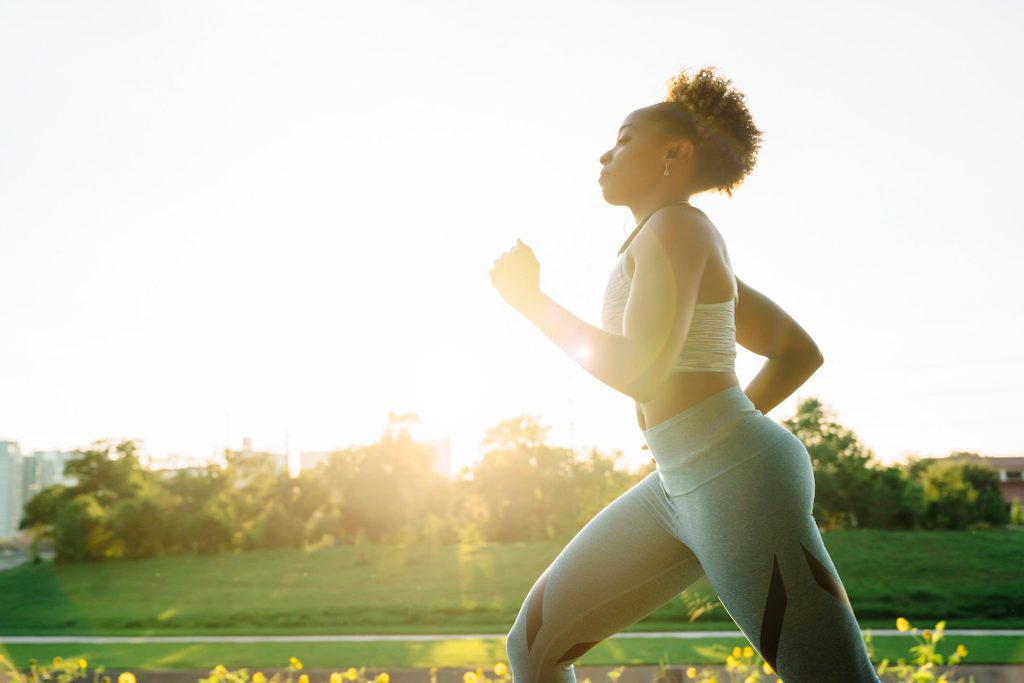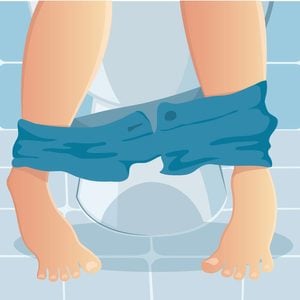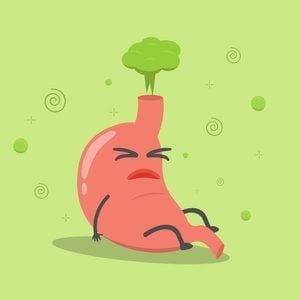Why Do I Have Bowel Movements When I Exercise?

Gastroenterologists reveal why you have the urge to go to the washroom when you exercise and the potential causes behind your unexpected bowel movements.
You know that all-too-familiar feeling—you get dressed, you lace up your kicks, you set out for your walk or run, and after a couple of minutes, it starts sneaking up on you. Yes, it—the urge to go number two. And you know if you don’t head home immediately what’s going to happen.
So, you probably ask yourself “Is this normal?” “Why does it always happen to me?” Or maybe, you wonder, “Is there any way you can prevent it?” Here’s what you need to know about why exercise makes you have to run to the washroom.
How exercise affects bowel movements
“This is a common issue,” assures Rudolph Bedford, MD, gastroenterologist at Providence Saint John’s Health Center in Santa Monica. “We do see patients frequently in our office with it who exercise, especially runners and cyclists.” For some people, the urge might come about mid-workout, and for others, it could happen post-workout, because the body is still feeling the effects of the exercise. The reason it happens at all? “It’s likely multi-factorial,” explains Dr. Bedford.
There hasn’t been that much research that looks into the reasons why you have to poop during or after exercise. However, one of the best studies on the topic was published in 1991 in the journal Gut by a researcher at the University of the Witwatersrand in Johannesburg, South Africa.
That study looked at the effects of moderate exercise on bowel movements in 10 participants who went through three one-week periods of either running on a treadmill, cycling on a stationary bike, or not performing physical activity at all. Throughout each of the weeks, bowel movements were tracked using radio-opaque markers and the stools were collected, weighed, and x-rayed. Overall, the transit time—how long it took food to make the gastrointestinal journey—went from 51.2 hours when sedentary to 36.6 hours when cycling and 34 hours when running. (Here’s more on how prolonged sitting can affect your health.)
“The study was very objective,” explains Peter K Chang, MD, a gastroenterologist at East Side Gastroenterology affiliated with Mount Sinai Hospital in New York City. “It made it clear that physical activity does increase bowel activity, but the physiology as to why is not quite clear.” However, GI specialists do have some theories about what could be causing the exercise-induced increase in bowel movements.
A change in hormone levels
“There have been studies done that show when you engage in physical activity, your hormones change,” explains Dr. Chang. The main hormone that comes into play here: the vasoactive intestinal peptide or VIP hormone that stimulates gut motility. “When you exercise, it can stimulate the release of VIP hormone and therefore increase bowel movement,” explains Dr. Chang.
Increased levels of adrenaline and other neurotransmitters can play a role as well. All of these hormones can also have an effect on gastrin, which is the peptide hormone that stimulates the secretion of gastric acid and aids in gastric motility.
A case of nerves
While it may seem too simple to be the cause of your bathroom issue, your nerves could also play a role in increased bowel activity during exercise. If you’re training for a competition or you’re running a race, you may be experiencing more nervous or excited feelings than normal.
“Think about it like this—if you have to escape from a tiger chasing you, you may poop your pants,” says Dr. Chang. “That’s because of the increase in hormones and neural activity. The nerves that transmit to and from the GI tract are affected.
Increase in blood flow
When you exercise, the blood in your body that would normally be supplying your intestines is drawn to other places like the muscles, to help oxygenate them, explains Dr. Bedford. “The reaction of the bowel, in this case, is to contract,” he explains, “and a contraction itself pushes things through.” Translation: Your next rest period may be on the toilet.
Being too hydrated
Hydration is important, but Dr. Bedford explains that being too hydrated (yes that’s a thing) is something he sees mostly in his patients that are long-distance runners and cyclists. “It’s a mix of drinking too much fluid, especially ones that have electrolytes in them,” he says. “This can create osmotic perfusion into the colon and small intestine, which can cause loose bowel movements to occur.” Loose bowel movements can sometimes mean diarrhea at the absolute most inopportune time.
When you have to go to the washroom when you exercise
The good news? While it might be annoying (or even stress inducing) to have bowel movements every time you go for a run, you should know that this is a normal, common problem. “While there are some geriatric individuals who would jump for joy if they could predict when they have to go to the bathroom, it can be inconvenient to have that urge when you’re trying to exercise,” says Dr. Chang. His suggestion? Stay away from things like coffee, which is a stimulant that affects the nervous system and gut and could make the problem even worse.
Can’t function without caffeine before your morning run? That’s OK, but Dr. Bedford suggests just trying to give yourself enough time to enjoy your cup of coffee and also have a bowel movement before heading out to get some exercise. “If you want to eat or have coffee before exercising, try to also have a bowel movement before,” he says. “It will always be to your benefit.”
A word about runner’s diarrhea
Yes, having to go to the washroom when you exercise is common and normal, but there are certain situations when it can actually be a problem. “If you notice an increasing frequency in these bowel movements, or they are becoming pathological, you could be experiencing runner’s diarrhea, which isn’t a good thing,” explains Dr. Chang.
Runner’s diarrhea could be caused by dehydration, too much of a decrease in blood flow to the intestines, anxiety, and stress. “We usually see this in long-distance runners and bikers, training for marathons and longer races, and it causes individuals to have diarrhea that they cannot control,” says Dr. Chang.
When to see a doctor
If you’re experiencing anything that feels out of the ordinary, it’s important that you talk to your doctor. “You may need to have your hormone levels and thyroid checked out,” explains Dr. Bedford. “There is a point where it could become necessary to take something to slow down the contraction of the colon.”
If urges are becoming uncontrollable and happening way more often than normal, don’t ignore it. Seek medical attention to find out what’s causing the problem and what you can do to fix it.







